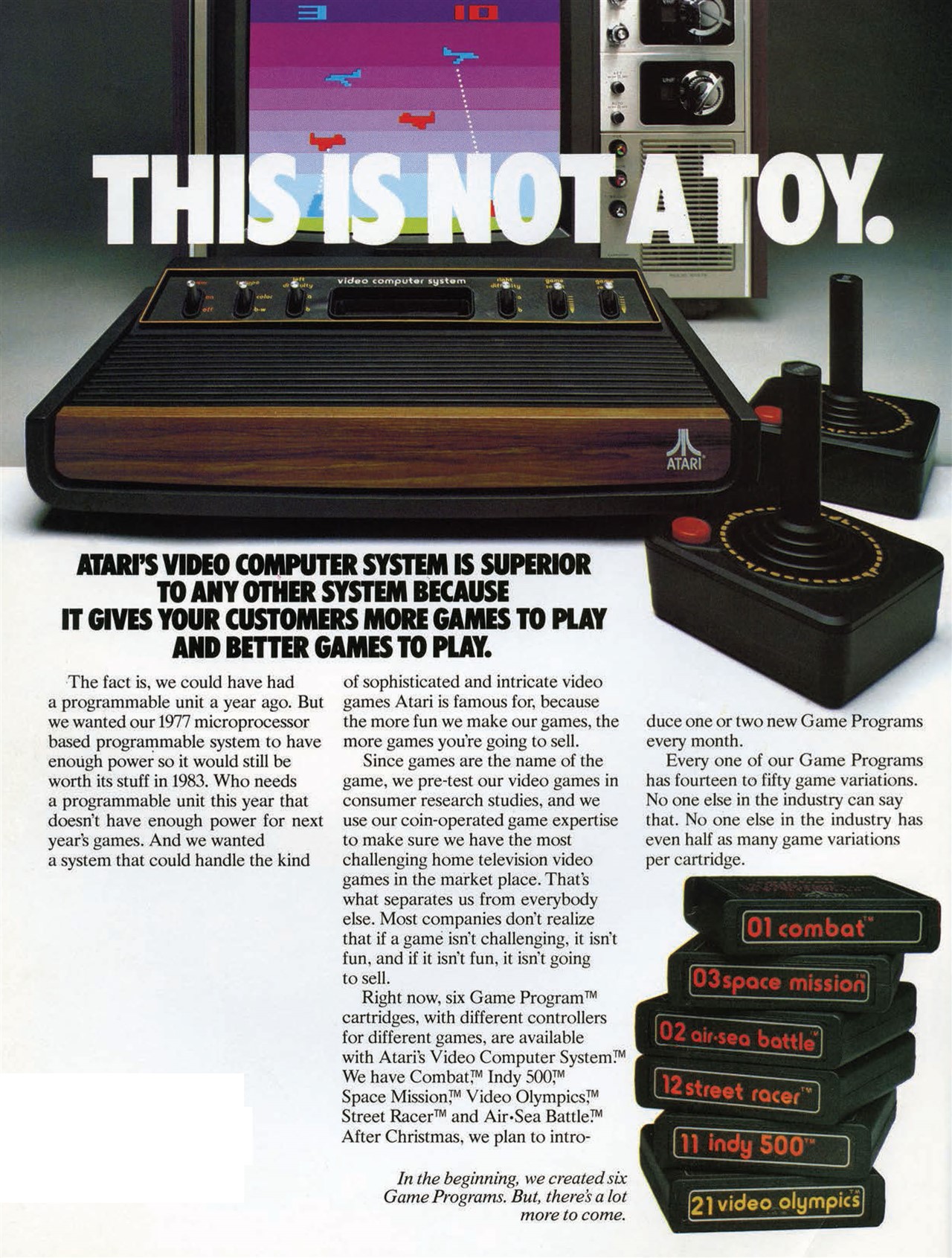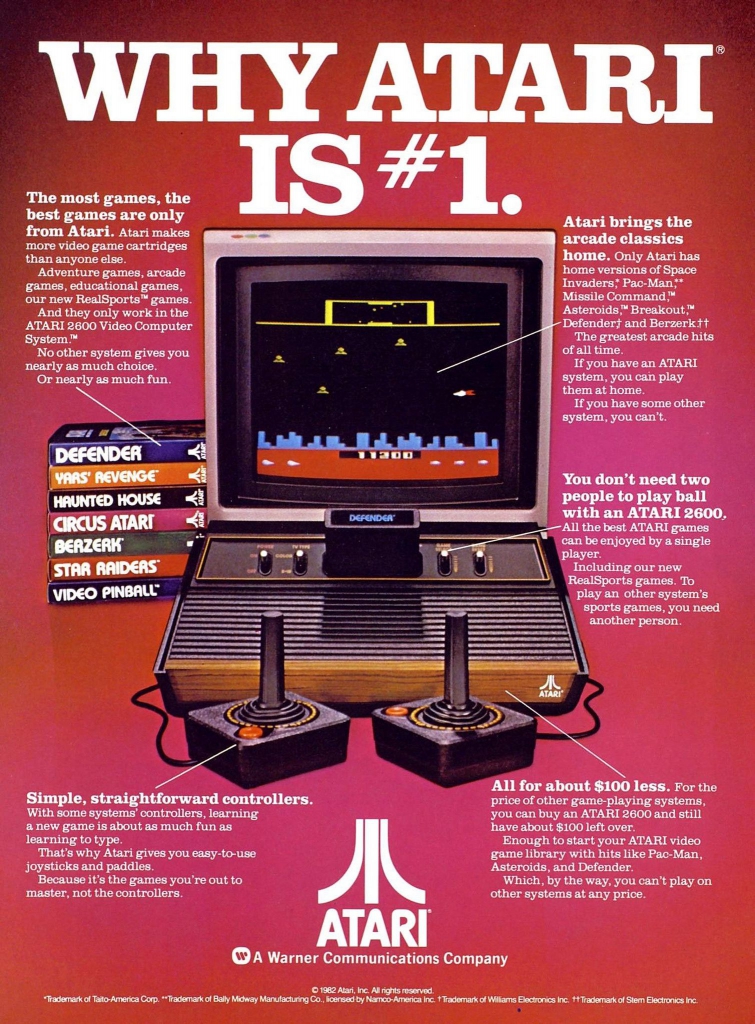Jedi Master Radek
Arcane
- Joined
- Dec 12, 2013
- Messages
- 4,357
Can you imagine a lawyer, a dentist, or a scientist playing some DOOM clone for more than five minutes or some kiddie platformer?
Yes.
Can you imagine a lawyer, a dentist, or a scientist playing some DOOM clone for more than five minutes or some kiddie platformer?
Most of the videogame magazines and books from the 80s treated games as things working adults did to have fun in their spare time. They were still "childlike" in appearance, most of them, but the people releasing them were conscious of that fact. Kids becoming "gamers" happened because the NES happened. I'm sure you played some Kings Quest game in your dad's pc, but it's a general thing to what you describe. Kids had "their" toy when the NES came out. When they grew up, they probably kept playing in consoles, or maybe they switched to PC, but by the mid 90s there's a clear change in perception where the average gamer seems to be an older teen or a young adult. 15-35 seemed to be the age range for most gamers and these days it's the same.It can all be explained by the radical change in the demographics of computer owners starting from the early 90s. The truth is, only rather well-situated people could afford a PC in the 80s, so quite naturally those were educated, literate people. Can you imagine a lawyer, a dentist, or a scientist playing some DOOM clone for more than five minutes or some kiddie platformer? Naturally, those folks were drawn towards more cerebral games such as strategy games, adventures, and RPGs. Who do you think Sierra sold all those rather expensive Roland MT-32s to? Elementary school kids?
Then prices went down, suddenly everybody had a PC, and you had to sell something to those masses... Guess what, they were not into strategy games and adventures, neither RPGs. But their money had the same worth, and there were a *lot* of them. You can work out the rest.
It's a bit disingenuous to think that Americans = stupid, Easter Europeans = prestigious. The birthplace of AD&D and cRPGS was most definitely the USA, then there were some much smaller scale efforts in Europe with a phase delay throughout the 90s. The "decline" is simply the result of changing market conditions and US people generally being good at the business side of things—more complex and demanding games were no longer a lucrative business after the early 90s. And maybe there's an element of Europeans being perhaps less money-driven in general, so some studios have this "fuck it all; we'll do what we love no matter what" attitude over there a bit more often perhaps.
Kids becoming "gamers" happened because the NES happened. I'm sure you played some Kings Quest game in your dad's pc, but it's a general thing to what you describe. Kids had "their" toy when the NES came out.


Nintendo was a toy manufacturer and designed the Famicom with that in mind. White and red, bright colors, basic, yet somewhat cool tech-y design to go nicely with a shelf that probably had airplane models, action figures and mecha anime paraphernalia. Atari did this, design a thing that would sit nicely right next to your father's woodgrain tv set and his expensive record player. Sega tried the same with their consoles: red and black, edgy, for the kid that was maybe a bit goth or liked metal. Nintendo outlived both, however, and probably for the same reason. Tech mumbo jumbo or dick measuring contests are not something a kid would wrap their head around properly, but "it's fun!" has all they need to make a decision.Kids becoming "gamers" happened because the NES happened. I'm sure you played some Kings Quest game in your dad's pc, but it's a general thing to what you describe. Kids had "their" toy when the NES came out.

I can imagine, actually. Oh, and about kids - do you know how I was able to play games? Because my parents bought a computer. And bought games for it too. If something has changed since then it's the demographics. A lot of former kid gamers are parents with kids nowadays and don't have as much time to dedicate for gaming. That's why a lot of popular games are very easy to get into.Can you imagine a lawyer, a dentist, or a scientist playing some DOOM clone for more than five minutes or some kiddie platformer? Naturally, those folks were drawn towards more cerebral games such as strategy games, adventures, and RPGs. Who do you think Sierra sold all those rather expensive Roland MT-32s to? Elementary school kids?
What happened is that developing a game became more costly as time went on (at cost of more complex in-game mechanics). So, obviously, when you have high cost you need to make it up somehow and selling as much as you can is one way of doing it (and big corpos want maximum profits). Indies operate differently: they keep costs low and aim at finding their own niche, which is why more often than not they tend to be spiritually closer to the games of old. This is the key difference between the two.Then prices went down, suddenly everybody had a PC, and you had to sell something to those masses... Guess what, they were not into strategy games and adventures, neither RPGs. But their money had the same worth, and there were a *lot* of them. You can work out the rest.
I think it's the political correctness that is hamstringing the Americans, at least in terms of the narrative and presentation. When you look at Central and Eastern Europe you can easily see the difference. Kingdom Come: Deliverence, The Witcher and Disco Elysium are all games that didn't pay much heed to the political correctness and focused instead on things that mattered for the respective games.It's a bit disingenuous to think that Americans = stupid, Easter Europeans = prestigious. The birthplace of AD&D and cRPGS was most definitely the USA, then there were some much smaller scale efforts in Europe with a phase delay throughout the 90s. The "decline" is simply the result of changing market conditions and US people generally being good at the business side of things—more complex and demanding games were no longer a lucrative business after the early 90s. And maybe there's an element of Europeans being perhaps less money-driven in general, so some studios have this "fuck it all; we'll do what we love no matter what" attitude over there a bit more often perhaps.
That's quite true; pretty much nobody was aware much of political correctness in Hungary when I still lived there (until about 2010). Big American companies with Hungarian offices were of course pushing the American bullshit but no one took it seriously... We did the "integrity" trainings because we had to, but everybody thought it was nonsense (including the managers). The "office sexual harassment" training was actually quite fun. True story: I actually "dated" quite a few chicks in the office (Geralt/Larry style), and no one gave a fuck...I think it's the political correctness that is hamstringing the Americans, at least in terms of the narrative and presentation. When you look at Central and Eastern Europe you can easily see the difference. Kingdom Come: Deliverence, The Witcher and Disco Elysium are all games that didn't pay much heed to the political correctness and focused instead on things that mattered for the respective games.
Turning 44 in a week, so I'm getting there with the baldness. It's only a matter of time!Leisure Suit Rincewind....
Surely you look better than Larry.
Kids becoming "gamers" happened because the NES happened. I'm sure you played some Kings Quest game in your dad's pc, but it's a general thing to what you describe. Kids had "their" toy when the NES came out.

This was also rooted in change of behavior of companies that started to pander to kids of overworked, divorced and/or estranged parents in the 80's, maybe even earlier.Most of the videogame magazines and books from the 80s treated games as things working adults did to have fun in their spare time. They were still "childlike" in appearance, most of them, but the people releasing them were conscious of that fact. Kids becoming "gamers" happened because the NES happened. I'm sure you played some Kings Quest game in your dad's pc, but it's a general thing to what you describe. Kids had "their" toy when the NES came out. When they grew up, they probably kept playing in consoles, or maybe they switched to PC, but by the mid 90s there's a clear change in perception where the average gamer seems to be an older teen or a young adult. 15-35 seemed to be the age range for most gamers and these days it's the same.It can all be explained by the radical change in the demographics of computer owners starting from the early 90s. The truth is, only rather well-situated people could afford a PC in the 80s, so quite naturally those were educated, literate people. Can you imagine a lawyer, a dentist, or a scientist playing some DOOM clone for more than five minutes or some kiddie platformer? Naturally, those folks were drawn towards more cerebral games such as strategy games, adventures, and RPGs. Who do you think Sierra sold all those rather expensive Roland MT-32s to? Elementary school kids?
Then prices went down, suddenly everybody had a PC, and you had to sell something to those masses... Guess what, they were not into strategy games and adventures, neither RPGs. But their money had the same worth, and there were a *lot* of them. You can work out the rest.
It's a bit disingenuous to think that Americans = stupid, Easter Europeans = prestigious. The birthplace of AD&D and cRPGS was most definitely the USA, then there were some much smaller scale efforts in Europe with a phase delay throughout the 90s. The "decline" is simply the result of changing market conditions and US people generally being good at the business side of things—more complex and demanding games were no longer a lucrative business after the early 90s. And maybe there's an element of Europeans being perhaps less money-driven in general, so some studios have this "fuck it all; we'll do what we love no matter what" attitude over there a bit more often perhaps.
Although nowadays the generations that always had internet and videogames as valid forms of entertainment and *the* form of entertainment are starting to reach an adult age and have kids. A baby born when the Codex was founded is now about to graduate college. Ironically, though, kids' entertainment is fucking dead, universally.







